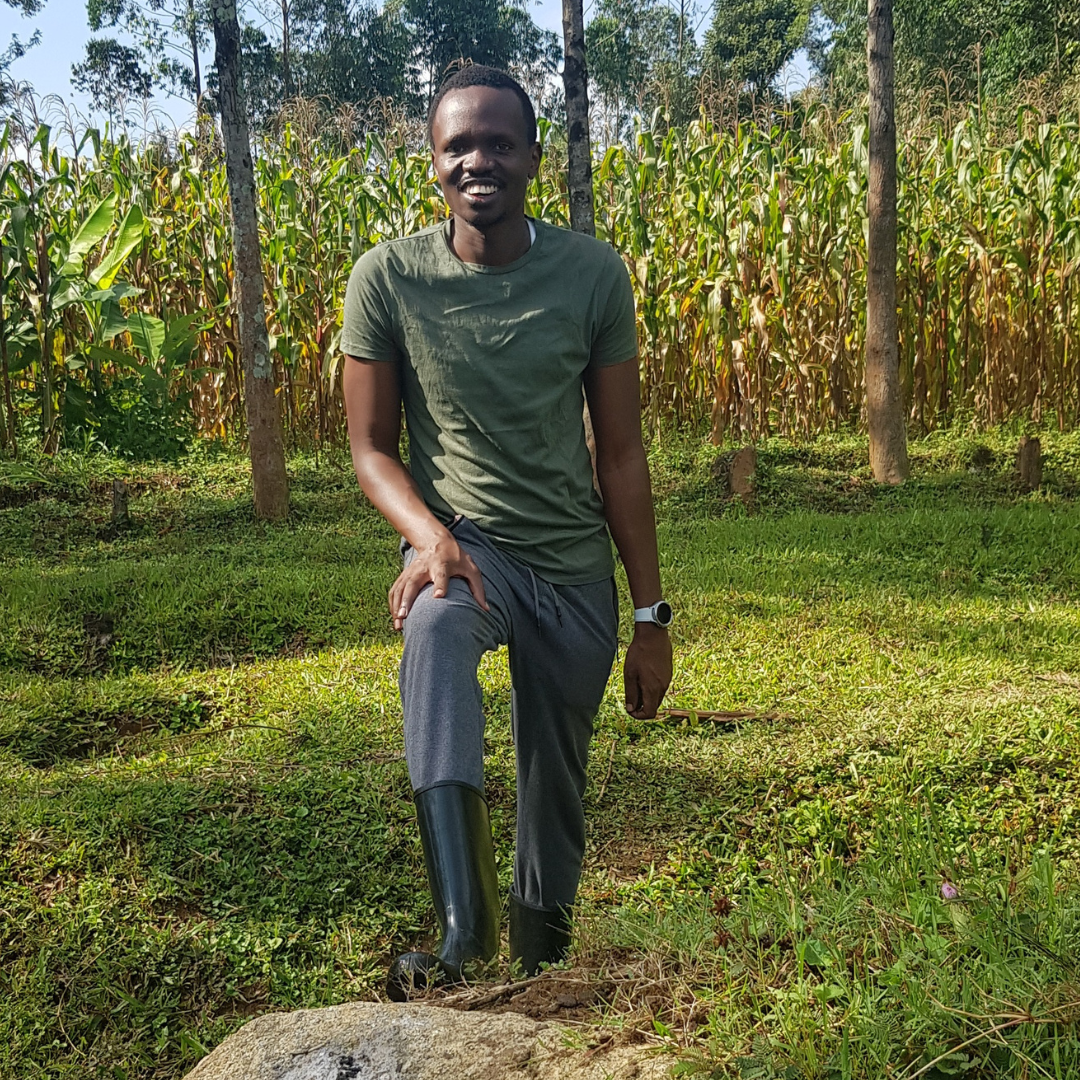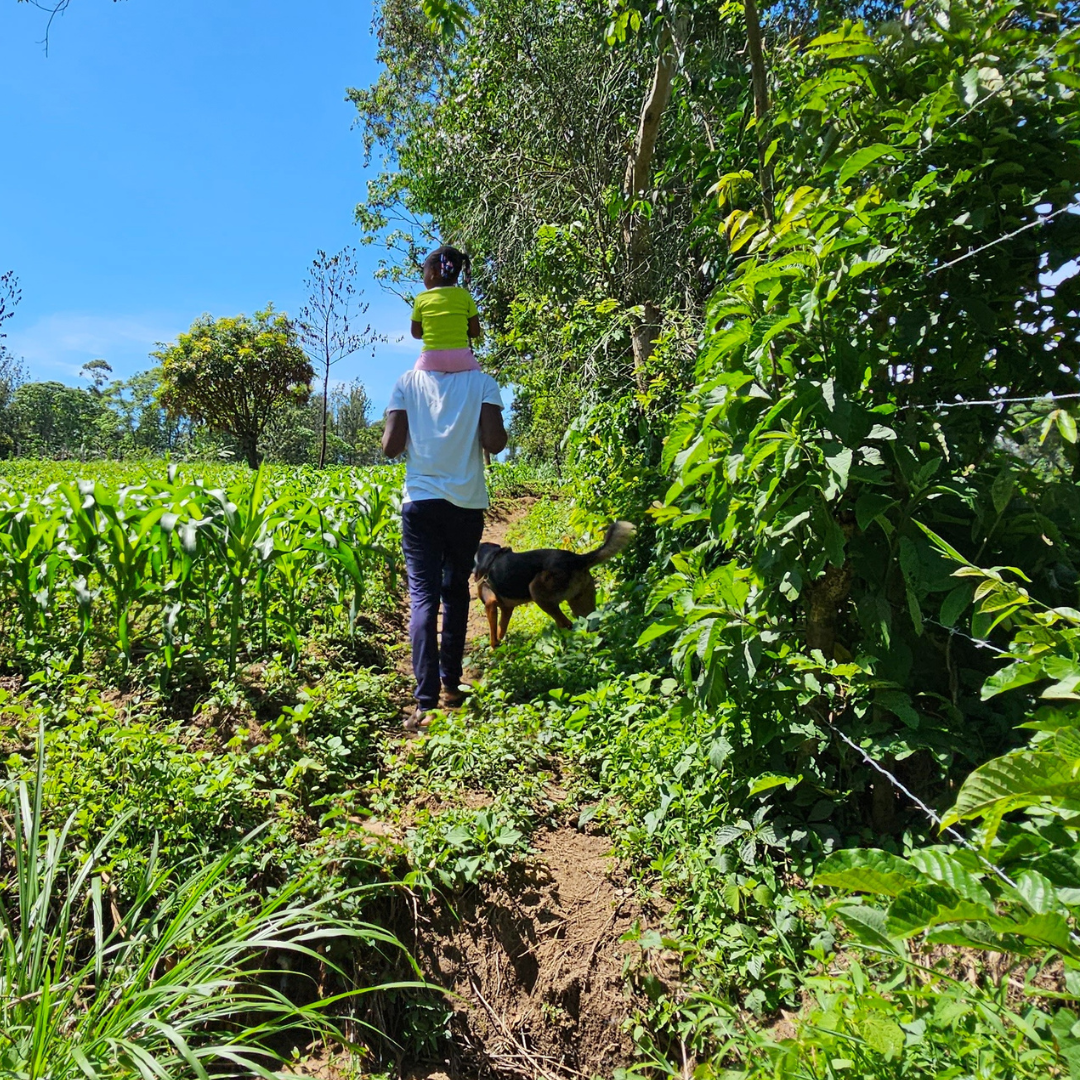Making numbers count: How a career in finance drives social impact
It's easy to imagine finance professionals tucked away in towering urban skyscrapers, furiously crunching numbers and thoughtfully considering individual or corporate expenditures. Not so, says Albert Emomeri, Head of Finance at Tupande (One Acre Fund Kenya). For Albert, his role is more than mere numbers and data; he sees impact in every transaction, strategy, and decision the organization makes – from why we spend money to deliver goods to farmers’ doorsteps to the distribution of retail shops across the regions we serve. As he says, working from Tupande’s rural headquarters in Kakamega gives his work a truly deep meaning – with a touch of everyday adventure.

Let’s start with impact: as a finance professional in an organization that serves farmers, how do you see ‘impact’ in your work?
My work is more than just about numbers. My work connects financial data to the work and decisions we make daily in service to farmers and smallholder farming. Every cost and budget decision directly affects our ability to deliver high-quality inputs and services to our customers. When I advise against, advocate for, or approve an expense; I ensure that we manage and utilise our resources efficiently to get the most out of them. This is what gives purpose to what the finance team does.
You could work from the city or remotely anywhere in Kenya if you wanted. Why did you choose to work from Tupande’s rural headquarters?
It all comes back to why I joined One Acre Fund: creating impact. The data I work with starts and ends with the farmers we serve. Being close to the clients – where the actual work happens – allows me to gain firsthand insights into farmers’ needs, challenges, and experiences. This way, I can help shape strategies that best serve farmers and support their livelihoods. Removing myself from this context would unground me, and the outcome would be quite different. Being close to farmers keeps my passion burning and my vision sharp; seeing the transformation my work brings keeps me grounded in our mission of transforming livelihoods.
Was moving to a rural location a difficult decision? Can you share your thoughts from when you decided, ‘I want to do this.’?
More than anything else, I was intrigued. The idea of returning to a rural setting was not new to me – my childhood was split between rural and urban environments. My biggest motivation was the chance to be close to my parents, who live in our rural home. Additionally, my father was already working with One Acre Fund, which gave me firsthand experience in the organization's impact on rural communities. Joining One Acre Fund felt like a natural fit.
If someone created a television series about your experience moving to a rural location, what would your favorite episode be?
The first one. I lived in Nairobi for college and early work years, so moving to the countryside brought some questions. How will I adjust? Are there quality amenities like hospitals and schools for my young family? Getting to Kakamega, especially seeing the One Acre Fund offices and housing compound, was a turning point. The peaceful surroundings exceeded my expectations, instantly putting me at ease. This episode stands out because my doubts faded and were replaced by a sense of belonging – I suddenly realised I had nothing to worry about. I also discovered that I thrive in tranquility and that my family and I could access good facilities and services. What’s more, if I missed city life, there is a city, Kisumu, just an hour away; it was the best of both worlds.
How did you prepare yourself for the transition?
Leaving the city meant more than just changing locations – it meant physically severing the connections and friendships I had built. In the final weeks, I made time for coffee and dinners with friends to ensure the bonds remained. While distance would change our daily interactions, I was determined to keep those channels of connection open. I continue to nurture those relationships, and they, in turn, continue to enrich my life from afar.
What would be your top tips if you were to create a "relocation guide" for someone moving to a rural headquarters?
When deciding, delve into the core, assess the trade-offs, and understand yourself deeply. At One Acre Fund, you'll discover a common thread among team members – the shared vision of serving farmers, which we constantly emphasize. This unity of purpose ignites our collective passion for creating impact. When you focus on delivering change, understanding your target community's needs becomes your compass, guiding you to make a real difference. And when you value impact, proximity to those you serve becomes desirable.
Did the organization offer any support or resources to make your relocation easier?
Yes, it did. I got a relocation allowance, which took away the cost burden. My manager helped me navigate professional – and some personal – challenges, including discussing the toll that relocating would have on my young family. Those early discussions highlighted the organization's caring culture, which strives to create a great environment for people to deliver in their roles.
Can you share any personal success stories or positive outcomes at individual and community levels due to your relocation?
Regular visits to my rural home have allowed me to witness how impactful our services are for farmers. For example, in our community, farmers enrolled with One Acre Fund and those who weren’t, adapted to the pandemic differently. I also farm, and it makes me happy that my daughter is part of this journey – she excitedly joins me during harvesting with her gumboots on, connecting with the land and my family’s farming roots. It is a constant reminder of why I love it here, and my motivation to deliver as best as I can, knowing my efforts bring real, positive change in my family and within communities.

How do you think having staff in rural areas reinforces One Acre Fund’s commitment to social impact and community development?
Due to economic difficulties and rising prices, the last two years have been tough for farmers. Being close to the farmers during this time has helped us understand farmers’ lived challenges and motivates us to find new ways to impact rural lives. I play a role in setting commodity prices, ensuring affordability for our farmers, even during challenging periods. Joining One Acre Fund has been one of my most rewarding decisions. Despite the ups and downs, I'm clear about my reason for working every day—a sense of purpose that isn't always present in every job.
What advice do you have for others contemplating a move to a rural location for work?
Being close to the action, if that is at a rural location, lets you connect better with your work and the purpose of it. When you join One Acre Fund, you quickly realize there's a lot to learn about how everything works, and being close to where the work happens makes it that much easier. If you want to create the best value in your role, being at the centre of the action gets you there faster.



